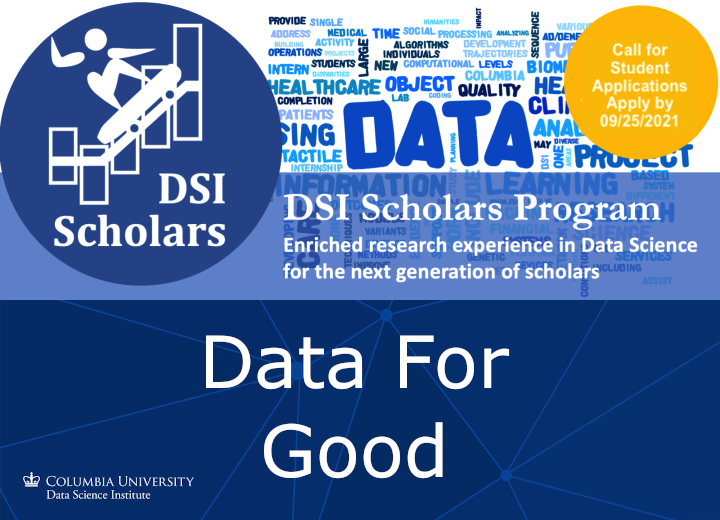Columbia University Data Science Institute is pleased to announce that the Data Science Institute (DSI) and Data For Good Scholars programs for Fall 2021 are open for application.
The goal of the DSI Scholars Program is to engage Columbia University’s undergraduate and master’s students in data science research with Columbia faculty through a research internship. The program connects students with research projects across Columbia and provides student researchers with an additional learning experience and networking opportunities. Through unique enrichment activities, this program aims to foster a learning and collaborative community in data science at Columbia.
The Data For Good Scholars program connects student volunteers to organizations and individuals working for the social good whose projects have developed a need for data science expertise. As “real world” problems with real world data, these projects are excellent opportunities for students to learn how data science is practiced outside of the university setting and to learn how to work effectively with people for whom data science sits outside of their subject area.





